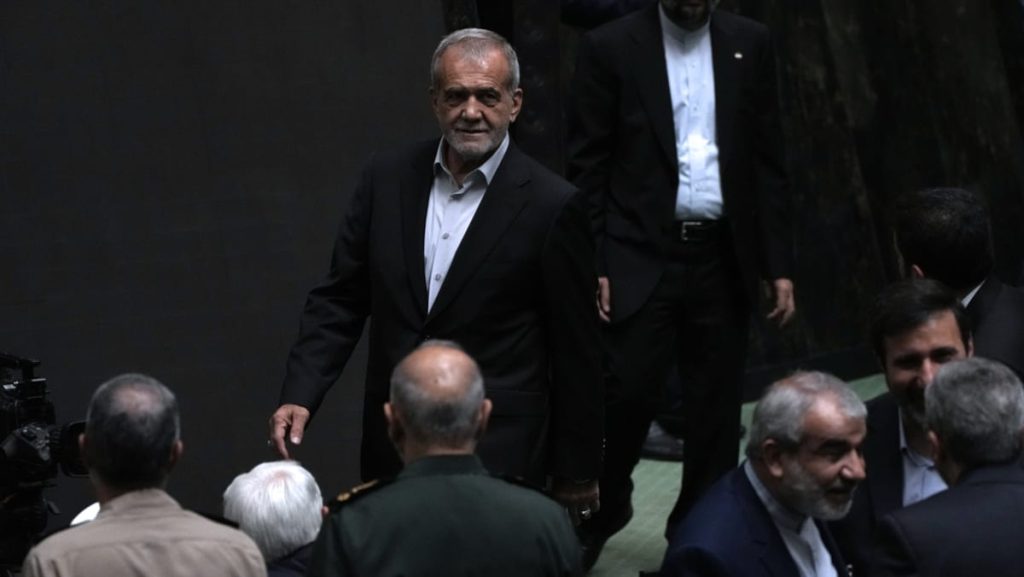Iran has accused the United States of supporting what it calls Israeli crimes in Gaza, stating that those who supply weapons that kill children cannot teach Muslims about humanity. This accusation was made by Iranian official Pezeshkian during a ceremony attended by leaders of Iran’s Palestinian allies Hamas and the Islamic Jihad, as well as representatives from Yemen’s Tehran-backed Houthi movement and Lebanon’s Hezbollah. The ceremony took place following the replacement of hardliner Ebrahim Raisi, who was killed in a helicopter crash in May, with Pezeshkian, who is expected to name his cabinet within two weeks.
As the ultimate authority in Iran, Supreme Leader Ayatollah Ali Khamenei has the final say in all state matters, including foreign and nuclear policy. He must also approve Pezeshkian’s selections for key cabinet posts, such as the foreign, oil, and intelligence ministers. Iran backs groups in the Middle East that describe themselves as the “Axis of Resistance” to Israel and U.S. influence, and views itself as a leader in the fight against perceived Western imperialism. The presence of leaders from various Iranian-allied groups at the ceremony demonstrates the strong ties Iran has established with these organizations.
The accusations made by Iran against the United States are part of a broader narrative that seeks to portray the U.S. as complicit in the violence and instability in the Middle East. By linking the U.S. to Israeli actions in Gaza, Iran is attempting to garner support from within the region and beyond by framing itself as a defender of the oppressed. This rhetoric also serves to strengthen the relationship between Iran and its allies, who share a common enemy in the U.S. and Israel.
The selection of Pezeshkian as Iran’s new leader signals a potential shift in the country’s approach to governance and foreign policy. While Raisi was known for his hardline stance against the West, Pezeshkian’s appointment could indicate a desire for a more diplomatic and pragmatic approach to international relations. However, it is important to note that the Supreme Leader ultimately holds the power in Iran and will play a significant role in shaping the direction of the country under Pezeshkian’s leadership.
The involvement of Iran in supporting various groups throughout the Middle East has long been a point of contention between the Islamic Republic and Western powers. Iran’s backing of Hamas, Hezbollah, and other organizations is viewed as destabilizing by countries like the U.S. and Israel, who see these groups as terrorist organizations. The presence of leaders from these groups at the ceremony for Pezeshkian highlights the close relationships Iran has cultivated with these actors, despite international condemnation.
In conclusion, Iran’s accusations against the United States regarding its support for Israeli actions in Gaza reflect a broader strategy to position itself as a champion of the oppressed in the Middle East. The appointment of Pezeshkian as Iran’s new leader may signal a potential shift in the country’s approach to foreign policy, although the Supreme Leader will retain ultimate authority in all state matters. Iran’s ties to various groups in the region, such as Hamas, Hezbollah, and the Houthi movement, continue to be a source of tension with Western powers, who view these alliances as sources of instability.













